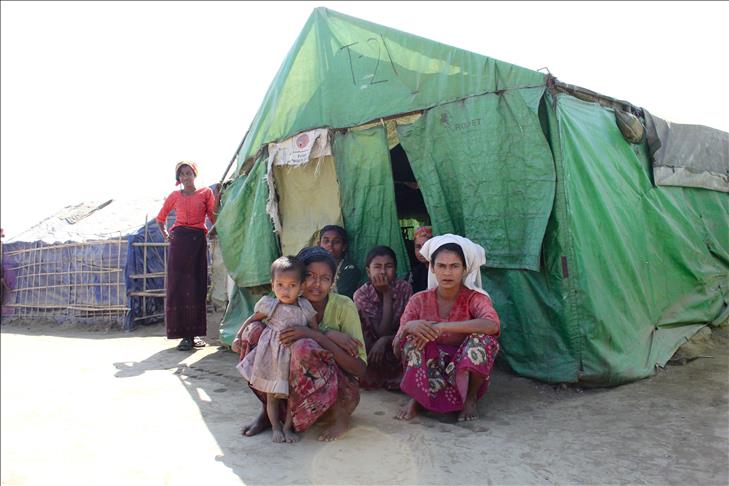
By Assed Baig
In 2013, in preparation for Myanmar’s census the government asked the Rohingya Muslims of western Myanmar to sign papers declaring that they were illegal immigrants from Bangladesh.
The result would have been the Rohingya identity being wiped from official records. Instead of agreeing, they responded by defiantly chanting: “Rohingya, Rohingya, Rohingya!” Following the protests the police began to arrest people they believed to have organized the demonstrations. The authorities refused to accept that they were not actually organized but were instead a spontaneous expression of the frustration the Rohingya felt at having their identity denied to them and forced to sign papers calling themselves illegal immigrants from Bangladesh.
According to the UN, the Rohingya are one of the most persecuted minorities in the world. Hundreds of thousands remain in camps and tens of thousands have been forced to flee the country, risking a perilous journey at sea. In 1982, under the citizenship act brought in by the military junta, the Rohingya had their citizenship removed and became stateless.
Win, one of Anadolu Agency’s contacts within Myanmar, was arrested on the accusation that he had organized a Rohingya demonstration against the census, though he is adamant that he had not. Win was held in detention for a week. “They beat and electrocuted me,” he says and then falls silent, not saying another word. He has clearly been traumatized by the ordeal. Win was only released after his family paid a ransom of one million Burmese Kyat, around US$1000, which they raised by borrowing and asking for help from relatives abroad. His family now say that he is suffering from the psychological effects of the torture. “He is not the same man,” his sister says. “He has changed,” she says, with a dejected look in her eyes.
Win’s family said that since his release every time he sees police near the house he begins to cry and becomes gripped with fear. His wife and children have to deal with the psychological damage the torture has left on Win’s mind. There are no doctors in the camps in Sittwe, let alone psychiatrists to help with the trauma.
Though Win was arrested for allegedly organizing protests, the authorities do not need any particular reason to detain the Rohingya. Muhammed Shafiq owns a little store that is little more than a roadside shack. He was arrested after going to a nearby military base in search of a soldier who had purchased some goods from him on credit but had disappeared. He did not even enter the base, he simply asked if the soldier was there but was detained and beaten by soldiers belonging to battalion 354. “They tied my hands behind my back and kicked and punched me for half an hour,” he told me. “I only wanted to see if the soldier was there, he owed me money,” said the 22-year-old. “They stripped me naked and searched me,” said Shafiq.
In one of the many Internally Displaced Persons camps an old woman approaches AA and asked to tell her story. Shugu Begum has not seen her son for two years.
“He was arrested in front of me during the violence,” she says. “We have been moved to camps and I have not seen him for two years,” she says as tears roll down her face.
Shugu looks tired and skinny. Her grey hair is tied back and she has the look of desperation on her face, she asks, “Do you know where he is?”
englishnews@aa.com.tr






